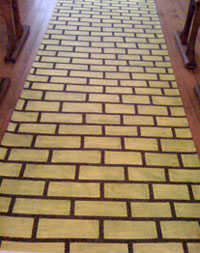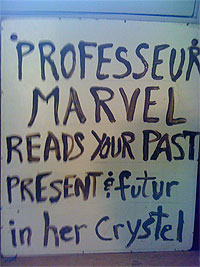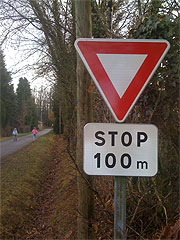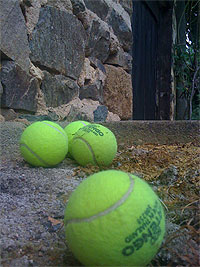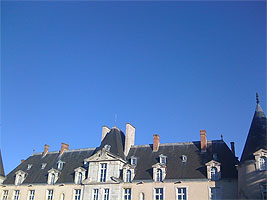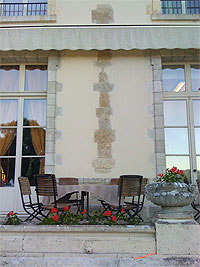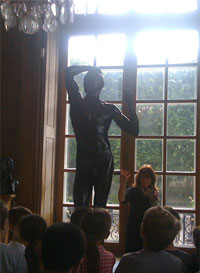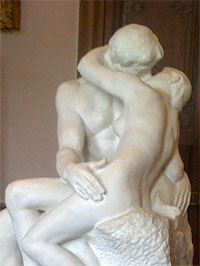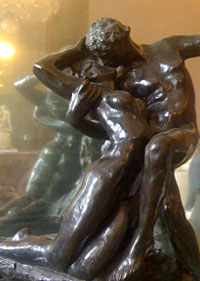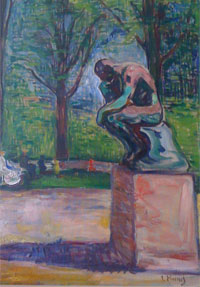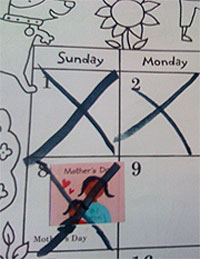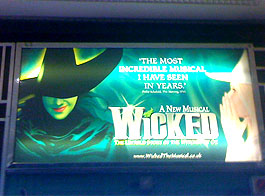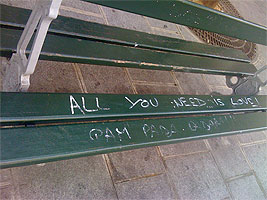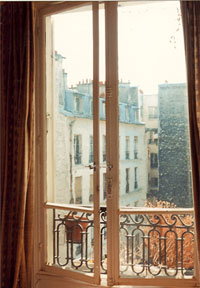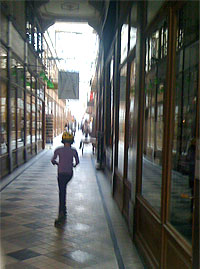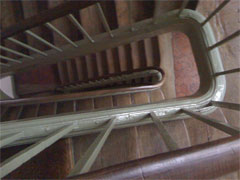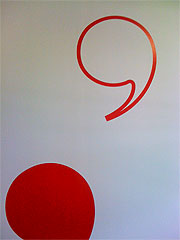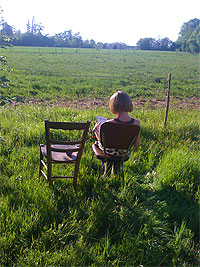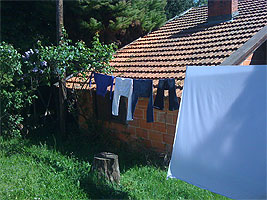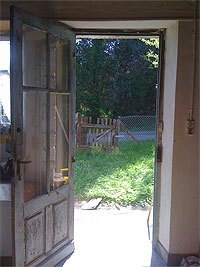All that Noise
I stood at the curb, waving goodbye as Buddy-roo’s face pressed against the window in a crying grimace. That would be the very last image I’d ever have of her – this is what I told myself as I walked away – if they got in a car accident on their drive to or from the country house. This is a morbid thought, I know, but don’t we all have them occasionally? I think this is how you handle a suppressed fear – the one you know is irrational but somehow it’s still lurking there, just under the surface, polluting an otherwise optimistic view of life.
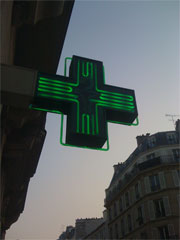
They were getting a late start, later than De-facto had hoped, and I knew that when they returned on Sunday he’d opt to leave even later to avoid the end-of-weekend traffic jam outside of Paris. But thinking of him driving by himself, so late at night, the two girls sleeping in the back, makes me just that little bit nervous – not enough to try to talk him out of going, but enough to let a few morbid thoughts squeeze their way into my colorful imagination.
I’d failed to pack Buddy-roo’s favorite doudou and pillow for her to have with her in the car, this was the original cause for her torrent of tears. The car was parked too far away from home to return to fetch the prized items, she’d have to do without. Then she realized that I wasn’t accompanying them to the country and this became her main beef. There was nothing I could do to console her; I knew the only answer was for De-facto to simply drive away. But that didn’t make it a very easy departure, for any of us.
Within a few blocks, however, the lump in my throat disintegrated and I regained my clarity and you could even say there was a little spring in my step: a contained enthusiasm about the idea of two nights – and full day in between them – to be all alone in my own home.
It’s not that I don’t get time to myself during the course of a regular day (though it never seems to be enough), but it’s impossible to get a long stretch of uninterrupted and unaccompanied hours in my own apartment. I have to be in my studio, or at a café, or away on business – and I do use that time to resource myself – but there’s nothing like a weekend of absolute solitude in the comfort of your very own home. If you live alone, you might not appreciate that sheer joy of this solitude – or maybe you do – but I can tell you with two children and a partner, I forget what tranquility is like, except perhaps late at night when I’m too tired to appreciate it fully.
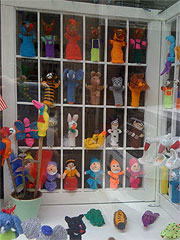
I love how you walk in the door and it’s absolutely still. Everything is just as you’ve left it. There is no wooden train track encircling the kitchen island with tenuously-constructed bridges tipping over each time you try to move from the refrigerator to the sink. There are no coats left in the hall, no shoes by the couch, no upside-down-and-open books and thin strips of just-cut colored paper and partially-finished spontaneous art-projects left on the table, the floor, the stairs or anywhere in your sight. I know these are the accoutrements of a creative childhood, and I believe I indulge and encourage them sufficiently. But just once in a while, it’s nice to have the house left how I like it, without having to nag anyone to get it that way. This only happens when they’re gone.
Then there’s the quiet. But don’t you love the sound of their feet pounding down the stairs, shouts of “Mama!” delivered with the same enthusiasm as if they hadn’t seen you for weeks, even though you walked them to school this morning? Yes. And. The fact that what’s usually playing in the background at home is the constant chatter of children, the talking and telling and an occasional tantrum, the sound of a hundred plastic pieces being dumped out of a bin onto the floor; it’s all one continuous loop of noise. I get that it’s good noise, it’s the noise of a happy family. But sometimes, it’s just nice to be happy without it, too.
The weekend was all mine. I did go out with some friends, knowing that if I had too much to drink, the following morning’s discomfort could be slept away without having to negotiate the manufacturing of pancakes. Yet I exercised discipline, because I was so excited to have a day to myself to do things alone in my own home, that I didn’t want to spoil this precious opportunity by being even the least bit hungover.
I went for hours without talking with anyone. I talked to myself, out loud, without anyone thinking I was nuts. I worked a little, but not too much. I wrote a little. I did what I wanted, and I did it when I wanted. A little slice-a-heaven.
This weekend coming up, it turns out, I’ll get another break from all that noise. This time I’m the one going away: I’ll slide through the Chunnel to London to attend Cybermummy, a conference for British mums who blog. 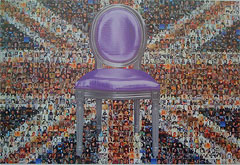 I didn’t plan these consecutive escapes from the girls (and there’s even another one coming up) and I know I should take advantage of another noiseless weekend without remorse. I should be more excited about going. I am looking forward to the reunion with several of the fab femmes I met last year at the BlogHer conference. But packing my suitcase tonight, I looked out at the mess of shoes and books and toys strewn about my living room, and I heard the girls upstairs opening and closing drawers, changing in and out of play-dresses and costumes, acting out the wild stories or singing songs they’ve made up on the spot, and I thought, I don’t mind it so much their precious, playful noise.
I didn’t plan these consecutive escapes from the girls (and there’s even another one coming up) and I know I should take advantage of another noiseless weekend without remorse. I should be more excited about going. I am looking forward to the reunion with several of the fab femmes I met last year at the BlogHer conference. But packing my suitcase tonight, I looked out at the mess of shoes and books and toys strewn about my living room, and I heard the girls upstairs opening and closing drawers, changing in and out of play-dresses and costumes, acting out the wild stories or singing songs they’ve made up on the spot, and I thought, I don’t mind it so much their precious, playful noise.
I might even miss it.

